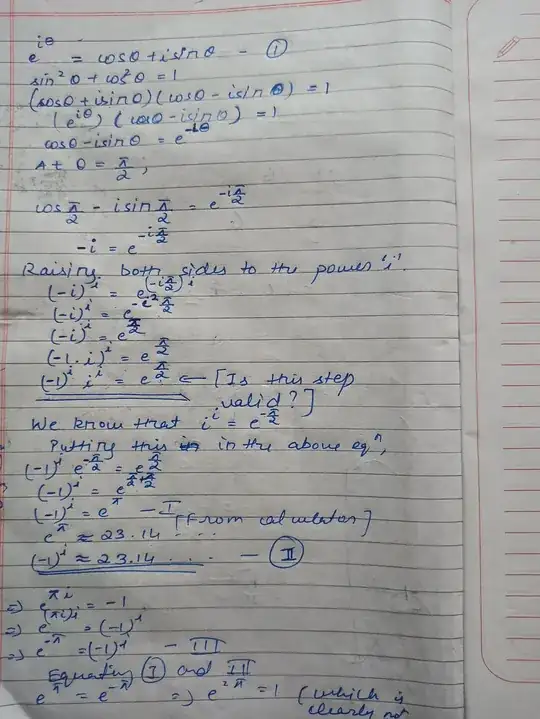Can anyone explain where did I actually commit a mistake?
In the end I got the result that e^(2\pi )=1 (which is clearly not true)

Asked
Active
Viewed 65 times
-3
Master Maxx
- 77
-
4$a^{b}$ is not uniquely defined number for $a,b \in \mathbb C$ and your manipulations are invalid. Until you are familiar with Complex Analysis you should use $a^{b}$ only for $a>0$. – Kavi Rama Murthy Dec 25 '19 at 09:37
-
1Please use MathJax to format your posts. – gen-ℤ ready to perish Dec 25 '19 at 09:55
2 Answers
1
The trick comes when you take the non-integer power of a negative number or a complex number with a non-zero imaginary part as Kavi mentioned. A contradiction involving exponents
Alessio K
- 10,599
0
You can refer to the following paradox: $$(1) ^{0.5}=(-1\times -1) ^{0.5}=(-1) ^{0.5}\times (-1) ^{0.5}=i\times i=-1$$. (Since $x^y$ is not well defined for $x, y\in\mathbb{C}$
Drinzjeng Triang
- 815